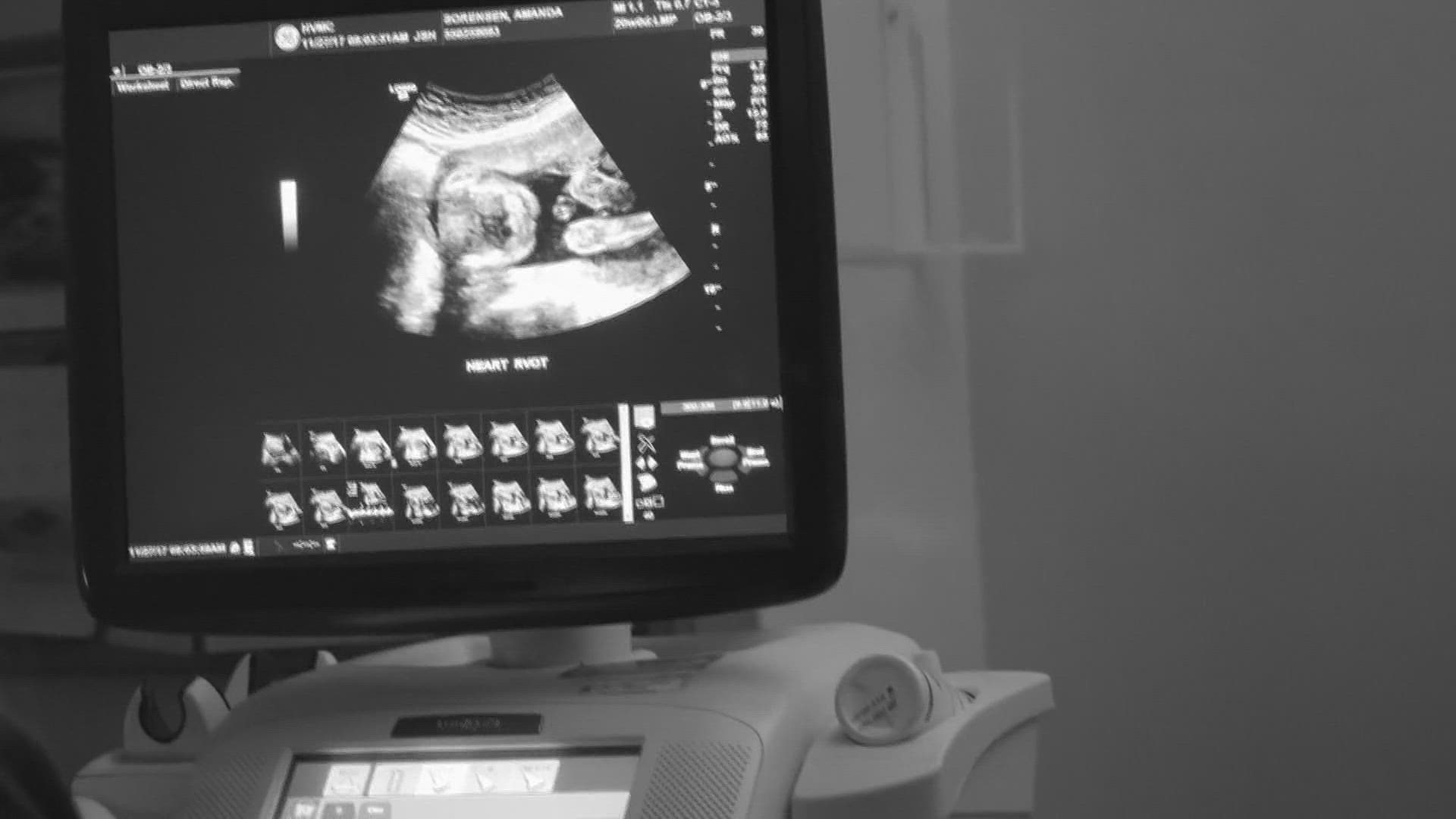NEW ORLEANS — The Supreme Court has ended constitutional protections for abortion that had been in place nearly 50 years - a decision by its conservative majority to overturn the court's landmark abortion cases. Friday’s outcome overturning Roe v. Wade is expected to lead to abortion bans in roughly half the states.
The decision, unthinkable just a few years ago, was the culmination of decades of efforts by abortion opponents, made possible by an emboldened right side of the court that has been fortified by three appointees of former President Donald Trump.
The ruling came more than a month after the stunning leak of a draft opinion by Justice Samuel Alito indicating the court was prepared to take this momentous step.
Louisiana Abortion Laws
Louisiana is one of 13 states with trigger laws that go into effect when the U.S. Supreme Court overturns Roe v. Wade.
Under a law signed by former Gov. Kathleen Blanco, a Democrat, most abortions would become illegal almost immediately upon the overturning of Roe, which means all three of Louisiana’s remaining abortion clinics, including the one in New Orleans, would have to be immediately shut down.
State Representative Mandie Landry said the closures are already in effect.
"All 3 abortion clinics are now closed," she said. "They closed the minute the decision came down. We have a trigger law from 2006 that our only female governor signed. That was reaffirmed this year. They're closed. If they perform any abortion care, they go to jail, get arrested, fined heavily - they're closed."
According to Louisiana's law, no person can administer, prescribe, procure for, or sell to any pregnant woman any medicine, drug or other substance with the intent causing an abortion. Individuals are also banned from knowingly performing a procedure on a pregnant woman with the intent to terminate the pregnancy.
Licensed physicians can perform an abortion to save a pregnant woman's life or prevent from serious, permanent damage. However, doctors must make "reasonable medical efforts" to save the life of the mother and unborn child.
The law does not prohibit contraceptives as long as they are administered "prior to the time when a pregnancy could be determined through conventional medical testing."
New Laws Expand Bans
Gov. John Bel Edwards has recently signed two bills that extend Louisiana’s abortion ban when the 1973 Supreme Court decision is overturned.
A bill by Democratic Sen. Katrina Jackson of Monroe, La., would make doctors who perform abortions subject to prison terms of one to 10 years. The bill passed during the recently ended 2022 regular legislative session was described by supporters as a means of clarifying and eliminating any conflicts in anti-abortion laws already in state statutes.
Abortion rights activists had pressed for a veto of the bill noting its lack of an exception for rape or incest victims. The governor said he would like to see such exceptions, but said vetoing Jackson’s bill would do nothing to accomplish that. Edwards’ office also noted exceptions in the bill allowing abortions when fetuses are deemed medically futile — suffering conditions making them unable to live after birth — and in cases of ectopic pregnancy.
Edwards, a Democrat who goes against his party on the issue, has long expressed opposition to legal abortion.
Edwards also signed into law legislation by Sen. Sharon Hewitt, a Slidell Republican, making it more difficult to obtain abortion-inducing drugs. The bill says such drugs must be administered by a licensed physician, in person, outlawing the dispensing of such drugs by mail.
The bill expands the definition of criminal abortion to include delivering, dispensing, distributing, or providing abortifacients when the person administering the medication is not a doctor licensed in Louisiana, effectively banning abortion by mail.
The law provides for five to 10 years of prison time or a $10,000 to $75,000 fine, or both. If the pregnant person is a minor, the penalty for the medication provider could range from 15 to 50 years of imprisonment or a $15,000 to $100,00 fine, or both.
Opponents of the bill argued that it is unconstitutional, as it potentially violates the federal Commerce Clause.
Abortion Bans across the U.S.
Twenty-six states are certain or likely to ban abortion if Roe v. Wade is overturned, according to the pro-abortion rights think tank the Guttmacher Institute.
Of those, 22 states already have total or near-total bans on the books that are currently blocked by Roe, aside from Texas. The state's law banning it after six weeks has already been allowed to go into effect by the Supreme Court due to its unusual civil enforcement structure. Four more states are considered likely to quickly pass bans if Roe is overturned, based on the political composition of those states and previous actions to limit access to abortion.
Here is the list, according to the pro-abortion rights think tank the Guttmacher Institute.
States with 'trigger laws'
- Arkansas
- Idaho
- Kentucky
- Louisiana
- Mississippi
- Missouri
- North Dakota
- Oklahoma
- South Dakota
- Tennessee
- Texas
- Utah
- Wyoming
States considered certain or likely to ban abortions
- Alabama
- Arizona
- Georgia
- Iowa
- Michigan
- Ohio
- South Carolina
- West Virginia
- Wisconsin
States expected to try and ban abortion if Roe overturned
- Florida
- Indiana
- Montana
- Nebraska
Sixteen states and the District of Columbia, meanwhile, have protected access to abortion in state law.
► Get breaking news from your neighborhood delivered directly to you by downloading the new FREE WWL-TV News app now in the IOS App Store or Google Play.
WWL-TV Reporter Paul Murphy, LSU Manship News Service Piper Hutchinson and The Associated Press contributed to this report.

